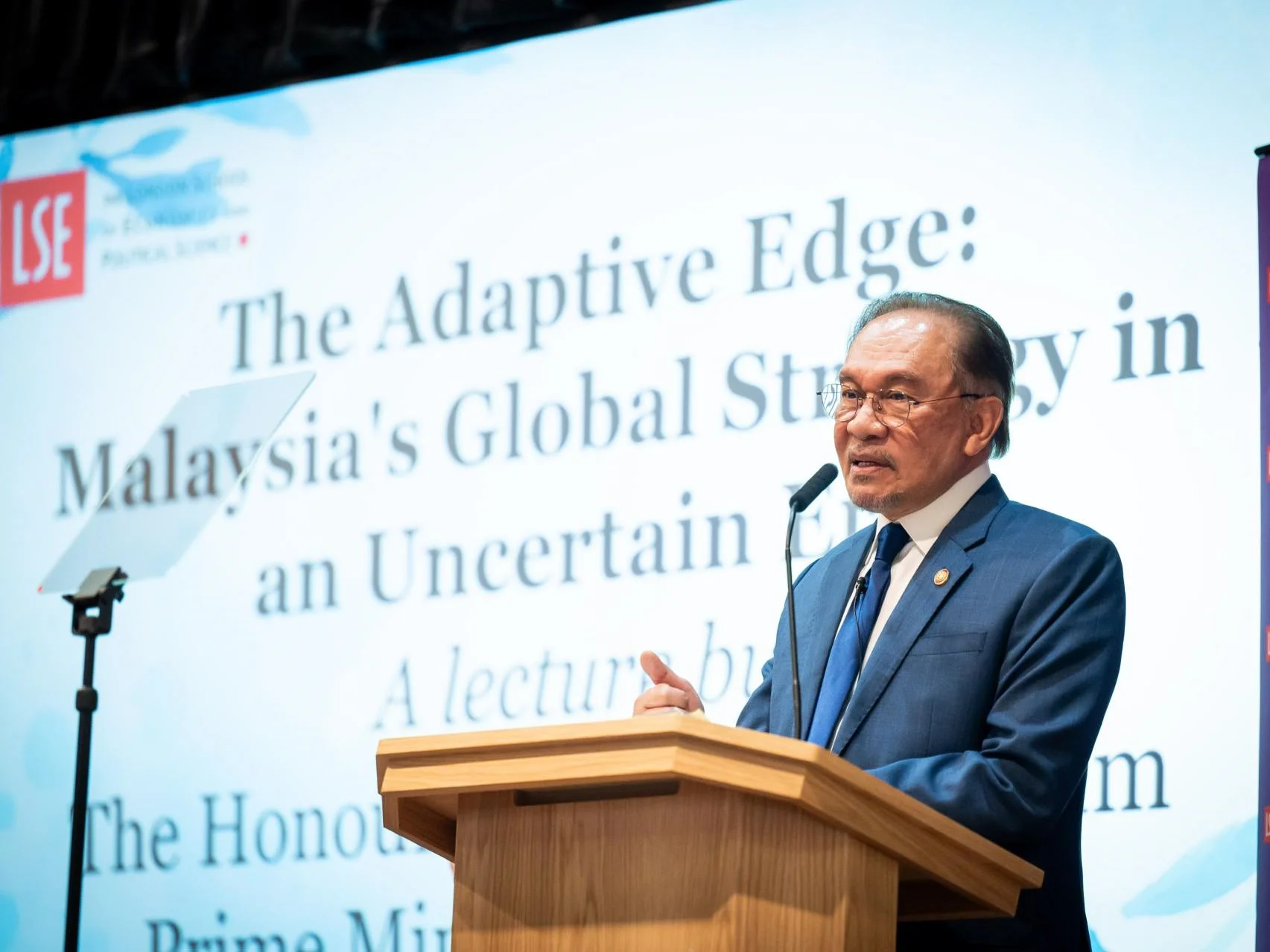Malaysian Prime Minister discusses global strategy at LSE

The Prime Minister of Malaysia Anwar Ibrahim visited LSE last week to officially open the School's Malaysia Auditorium and give the inaugural lecture of the Malaysia Lecture Series.
The event, chaired by LSE President and Vice Chancellor Larry Kramer, opened with a speech from the President of the LSE Alumni Society of Malaysia (LSEASM), Dato' Azman Shah Mohd Yusof, who invited Prime Minister Ibrahim to speak at LSE.
During this speech, Dato' Azman discussed the School’s long-standing connections with Malaysia and thanked Mr Ibrahim for officiating the launch of the Malaysia Auditorium. Funded by contributions from LSEASM, the 460-seat auditorium, located in the Centre Building, was completed in June 2019, and serves as a centre for Malaysian culture at LSE.
Prime Minister Ibrahim began his lecture with a discussion of the disrupted international status quo, noting the rise of populism and the power of "post-truth politics" brought about by fabricated news. He then framed his speech with a question: "Can democracy really function when such a state of being engenders the politics of exclusion, division, dispossession and hate, which then cross from rhetoric to policies?"
Mr Ibrahim went on to note that discourses of suspicion and animosity run contrary to the "very ethos of LSE’s Fabian founders, who advocated progressive ideas of social democracy and social justice." He then emphasised that the creation of wealth, whilst important for the positive attainment of Malaysian society, should not sanction "unbridled capitalism" but bring about "sustainable economic growth, and shared prosperity".
The lecture then moved to address global political power struggles, with Mr Ibrahim emphasising the significance of US-China competition for economies, technologies, and alliances across the globe. He warned against the regressive potential consequences of a mindset of suspicion and distrust and affirmed that "the challenge for Malaysia is not merely to endure, but to thrive," in this volatile political climate.
Addressing the changes in centres of prosperity globally, Prime Minister Ibrahim invited the audience to consider the "immense aspirations and cumulative heft of Southeast Asia" and praised the Global South as a "driver of global prosperity".
He asserted that Malaysia will continue its open and pragmatic approach in engaging both the United States and China, aiming toward cultivating engagement with both, in order to ensure the region’s position as a "resilient, open and competitive economy."
Elaborating on changes to Malaysia’s economic frameworks and their positive results, Mr Ibrahim highlighted Malaysia’s robust economic performance in 2024 and discussed Malaysia’s value to the global semiconductor supply chain. He went on to say said that Malaysia’s decision to join BRICS was "about a clear-sighted recognition of the geopolitical and geoeconomic changes that are happening around us and expanding our options".
Closing his speech, Mr Ibrahim praised the relationship enjoyed by Malaysia and the United Kingdom, hoping that "as Malaysia continues to chart a clear and confident course, the road that stretches out ahead for the two countries promises to be far less winding, and less bumpy."
The session concluded with a dynamic Q&A session, covering diverse topics from the peace process in the Middle East to sustainability efforts and humanitarian issues.
A recording of the event can be found here.